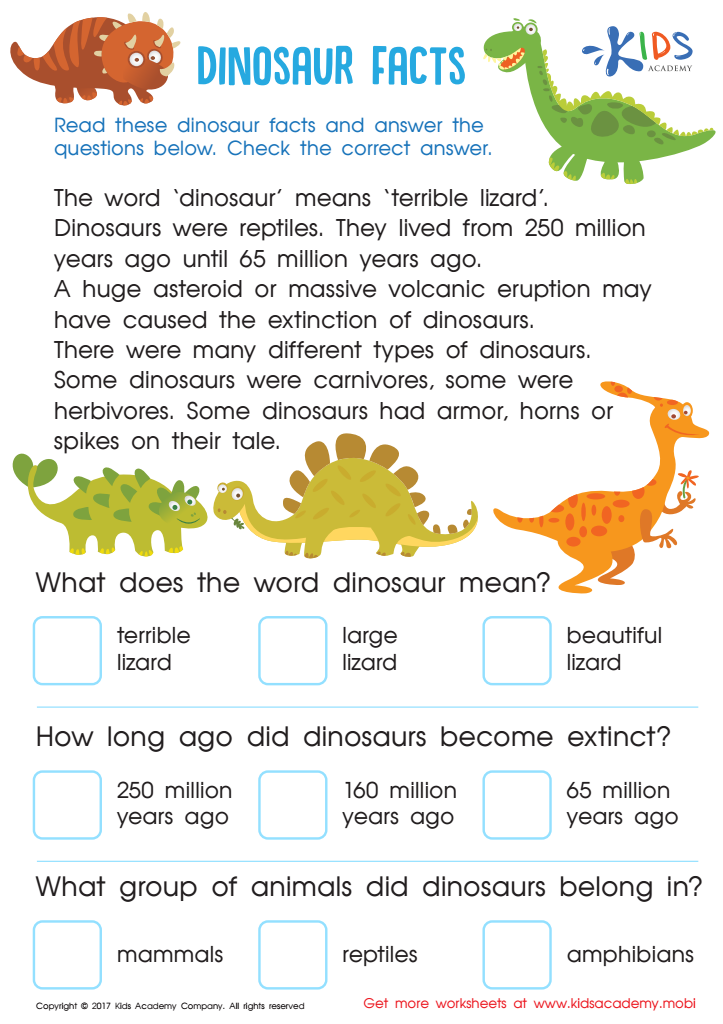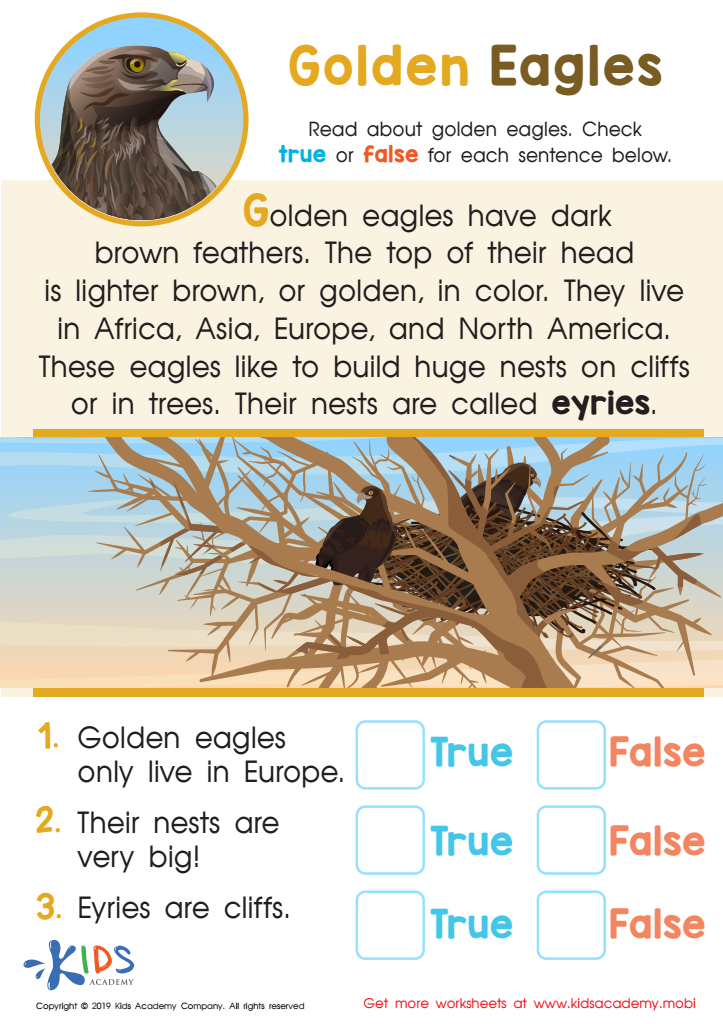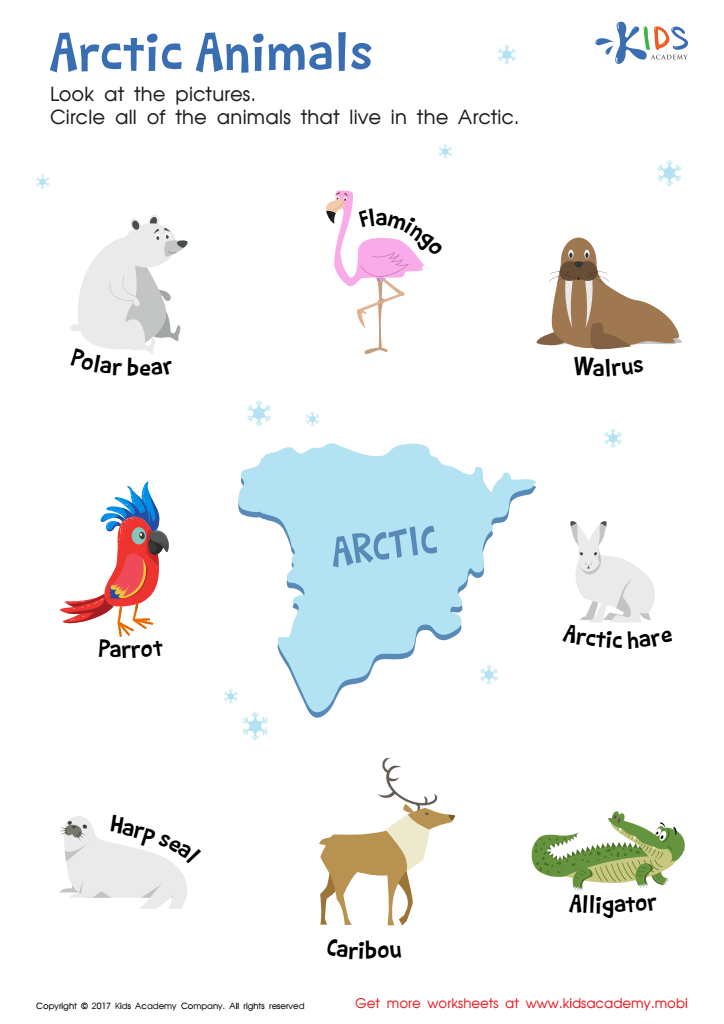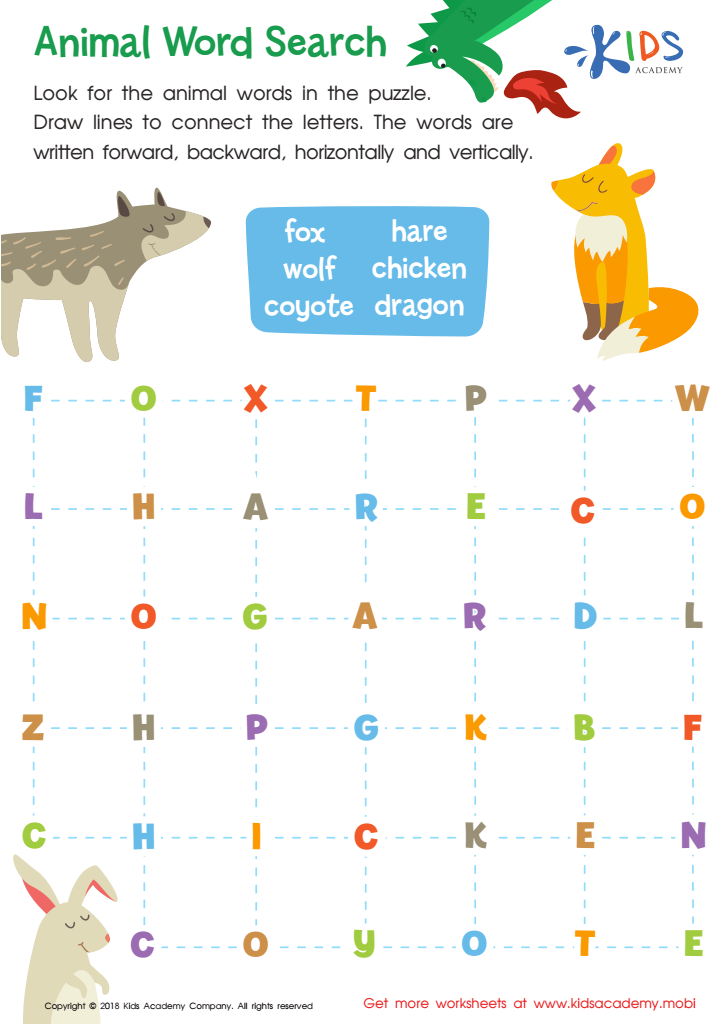Vocabulary Building Normal Animals Worksheets for Ages 5-8
4 filtered results
-
From - To
Enhance your child's vocabulary with our engaging Vocabulary Building Normal Animals Worksheets designed for kids aged 5-8! These interactive, colorful worksheets introduce children to a variety of animals while expanding their language skills through fun exercises. Each worksheet focuses on key vocabulary words related to animals, encouraging young learners to explore their environment and understand animal characteristics. Perfect for enhancing literacy skills, our worksheets are great for home or classroom use. Help your child develop a strong foundation in vocabulary with enjoyable activities that ignite their curiosity and foster a love for learning about the animal kingdom!


Dinosaur Facts Worksheet


Golden Eagles Worksheet


Arctic Animals Worksheet


Animal Word Search Worksheet
Vocabulary building is crucial for children aged 5-8, particularly in the context of normal animals, as it directly enhances their language skills, comprehension, and overall literacy development. During these formative years, children are eager to explore the world around them, and animals are a relatable and engaging topic that captivates their interest. Teaching vocabulary related to animals not only introduces specific words but also encourages curiosity and promotes discussions about nature, habitats, and conservation.
By integrating vocabulary building into lessons about animals, parents and teachers can foster critical thinking and communication skills. It lays the foundation for more complex language use, enabling children to express their thoughts, ask questions, and engage with peers. This knowledge also supports reading comprehension, allowing children to relate words to their meaning as they encounter them in stories and informational texts.
Moreover, sharing knowledge of animals can nurture empathy and a sense of responsibility towards living creatures and the environment. Parents and teachers who prioritize vocabulary building can create enriching learning experiences that prepare children for academic success while fostering a lifelong love of learning. This investment will equip young learners with essential skills that will benefit them well beyond their early educational years.

 Assign to My Students
Assign to My Students



















